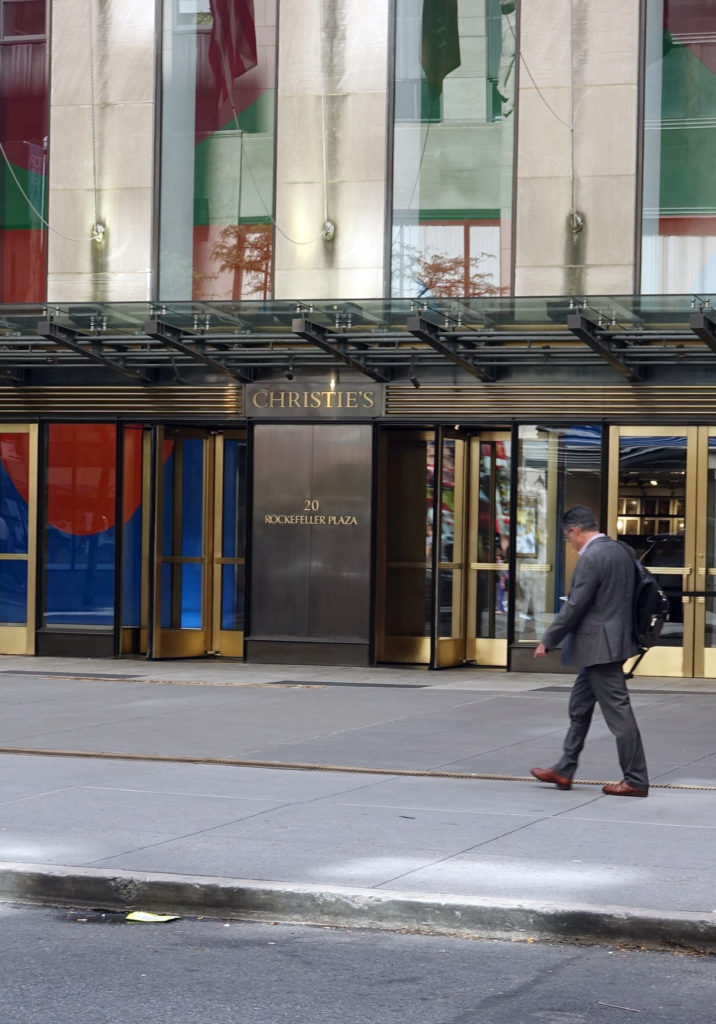Auctions
Christie’s Hurriedly Withdraws Two Lots From an Upcoming Antiquities Sale That May Have Been Looted
The objects were dropped from the sale after an archaeologist pointed out their ties to two dealers linked to the illicit trade.

The objects were dropped from the sale after an archaeologist pointed out their ties to two dealers linked to the illicit trade.

Eileen Kinsella

Christie’s auction house has withdrawn two lots scheduled for its upcoming April 12 New York antiquities sale after a researcher raised major provenance concerns.
The withdrawn works include an ancient Greek vase and a Roman cavalry helmet.
According to the Art Newspaper, which first reported the story, the objects passed through the hands of dealers known to have trafficked in illicit artifacts. Hours after the story was published, the vase was removed from the sale, followed by the helmet the following morning.
The concerns were raised by forensic archaeologist Christos Tsirogiannis, who has spent nearly two decades conducting research into auction lots, often at antiquities sales. His research has contributed to the restitution of works from museums including the Metropolitan Museum of Art and the J. Paul Getty Museum to their rightful owners.
Tsirogiannis—a “thorn in the side of auction houses,” as one of his colleagues put it—said the vase, dating to around 450 B.C.E., can be traced back to convicted Italian antiquities dealer Gianfranco Becchina.
Becchina’s business records—140 binders with more than 13,000 documents related to sales—were confiscated by Swiss and Italian authorities in 2001.
According to Tsirogiannis, all the objects documented in the archive were known to have passed through a network of illicit suppliers.
In his research, Tsirogiannis noticed that the vase was missing restoration details, including any notes about its broken rim and neck, and lost paint.
The helmet, he said, can be traced through photographs to Robert Hecht, who stood trial in 2005 for allegedly dealing in looted artifacts, but was never convicted.
In 1972, Hecht brokered the sale of the Euphonious krater to the Metropolitan Museum of Art. It was repatriated to Italy in 2008, after evidence emerged that it was looted.
Christie’s, which did not respond to a request for comment by press time, told the Art Newspaper that in “no circumstances” would it sell works with provenance or authenticity concerns.
“We devote considerable resources to investigating the provenance of the works we offer for sale,” the auction house said. “In the case of the upcoming sale of these lots, the research we conducted gave us no reason to believe that any of these lots are from an illicit source or that the sale would be contrary to applicable law. We continue to conduct research on these items.”